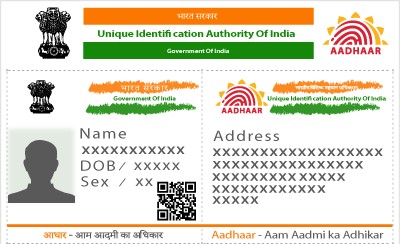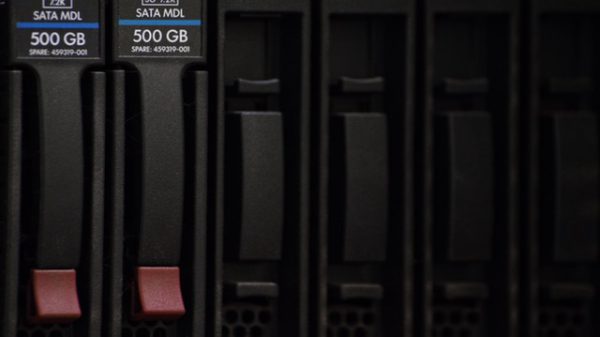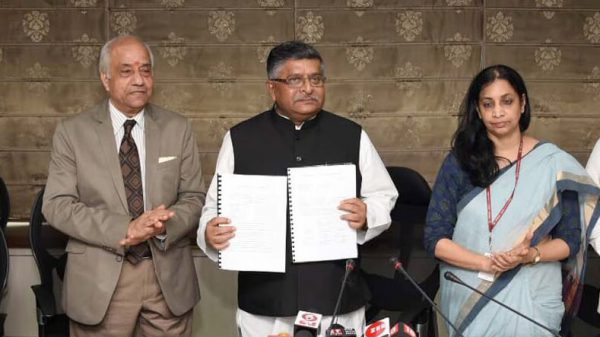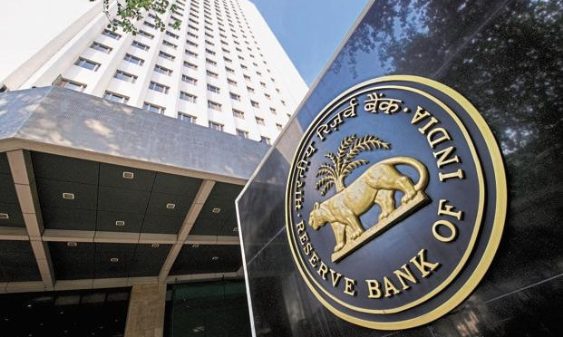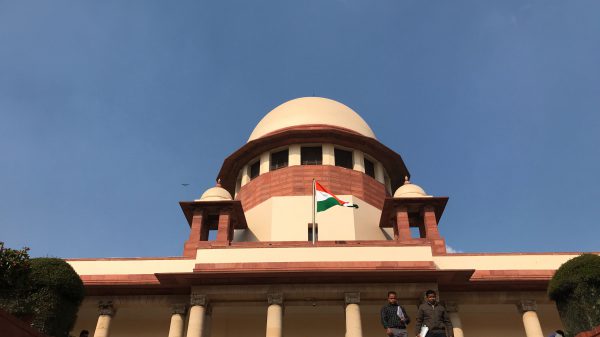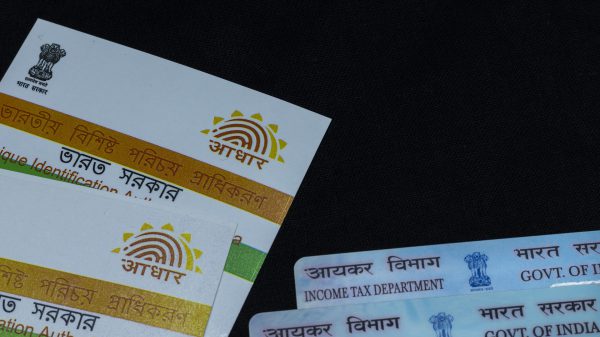The Supreme Court has dismissed petitions seeking review of the 2018 judgment that upheld the certification of the Aadhaar Act as a money bill, and its subsequent passage in Parliament in that form. The majority judgment said there was “no case of review” and threw out the seven review petitions. The order was passed by a five-judge bench headed by Justice A.M. Khanwilkar.
Justice D.Y. Chandrachud, who gave the only dissenting opinion in the 2018 Puttaswamy judgment, also dissented to the Supreme Court dismissing the review petitions. Drawing out a map of how another bench of the Supreme Court later called out the failings of the Puttaswamy judgment around money bills, Justice Chandrachud said that “it is a constitutional error to hold at this stage that no ground exists to review the judgment”.
Petitions sought review aspects around money bill
The seven review petitions, five of them filed between October and December 2018, and another two filed in January 2019, sought a review of the judgment of the five-judge constitutional bench on two matters:
- Whether the Lok Sabha Speaker’s introduction of a bill as a ‘Money Bill’ is final and binding, or whether it can be subject to judicial review, and;
- If it is subject to judicial review, whether the Aadhaar Act, 2016, had been correctly certified as a ‘Money Bill’
In the Puttaswamy judgment of 2018, the majority opinion upheld both; stating that Aadhaar Act had elements of a money bill and that its other provisions were “incidental to its core”. Justice DY Chandrachud had dissented then, and said that the Speaker’s decision to certify the Act as a money bill was unconstitutional.
Issues around money bill pending before larger bench: Chandrachud
In the ruling for the review petitions, Justice Chandrachud explained that that the issue of whether a Speaker’s decision can be subject to judicial review came up before another constitutional bench — Rojer Mathew v. South Indian Bank Ltd. — in context of whether some of the provisions of the Finance Act, 2017, could have been certified as a money bill. This judgment called out the failings of the majority judgment in the Puttaswamy case, stating that it did not sufficiently examine Article 110 of the Constitution, the provision which lays down the circumstances in which a bill can be deemed a money bill. The Supreme Court itself said noted in the Rojer Mathew case that:
It is clear to us that the majority dictum in K.S. Puttaswamy (Aadhaar-5 J.) [K.S. Puttaswamy (Aadhaar-5 J.) v. Union of India, (2019) 1 SCC 1] did not substantially discuss the effect of the word “only” in Article 110(1) and offers little guidance on the repercussions of a finding when some of the provisions of an enactment passed as a “Money Bill” do not conform to Articles 110(1)(a) to (g).
Its interpretation of the provisions of the Aadhaar Act was arguably liberal and the Court’s satisfaction of the said provisions being incidental to Articles 110(1)(a) to (f), it has been argued, is not convincingly reasoned, as might not be in accord with the bicameral parliamentary system envisaged under our constitutional scheme. — Justice D.Y. Chandrachud (Emphasis added)
Dissatisfied with the majority opinion of the five-judge bench judgment (specifically with regard to the money bill aspect), the Court had referred the Rojer Mathew matter to a larger bench. In yesterday’s ruling, Justice Chandrachud argued that the correctness of the Puttaswamy judgment, as far as issues around money bill are concerned Aadhaar being passed as a money bill is concerned, and whether a Lok Sabha speaker’s decision can be reviewed by the judiciary, “are issues which will be resolved by a larger bench, which is yet to be constituted”.
Dismissing the present batch of review petitions at this stage – a course of action adopted by the majority – would place a seal of finality on the issues in the present case, without the Court having the benefit of the larger bench’s consideration of the very issues which arise before us.
With the doubt expressed by another Constitution Bench on the correctness of the very decision which is the subject matter of these review petitions, it is a constitutional error to hold at this stage that no ground exists to review the judgment. The larger bench’s determination would have an undeniable impact on the validity of the reasons expressed in Puttaswamy (Aadhaar-5J.), on the constitutional issues pertaining to and arising out of the certification by the Speaker of the House of People. The failure to recontextualize the decision of the larger bench with regard to the Aadhaar Act being a ‘Money Bill’ under Article 110(1) will render it a mere academic exercise. — Justice D.Y. Chandrachud (Emphasis added)
Read more:


